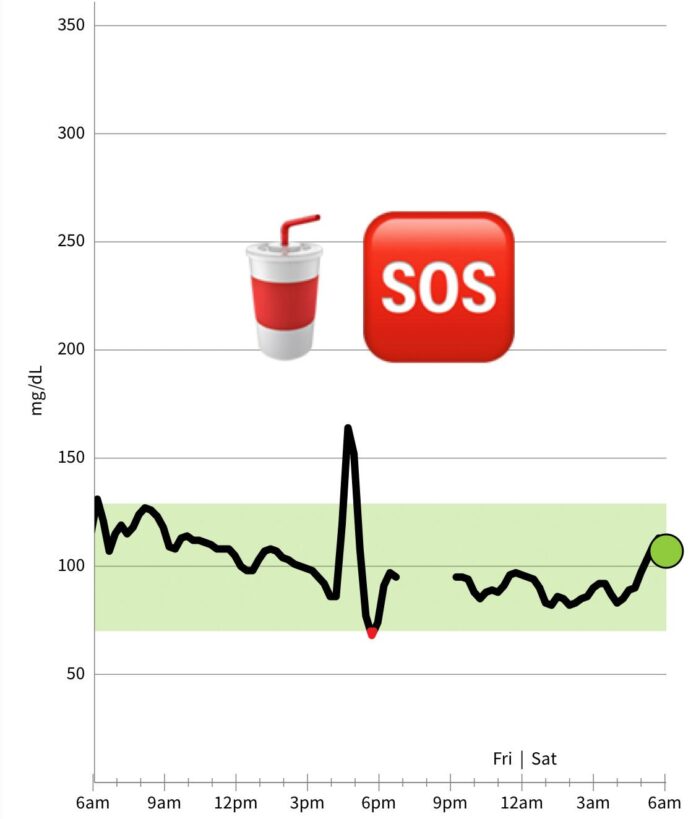
Understanding the Importance of Blood Sugar Ranges for Optimal Health
Blood sugar levels play a crucial role in maintaining our overall health and well-being. The body relies on glucose as its primary source of energy, and it is important to maintain stable blood sugar levels to support proper bodily functions. When blood sugar levels are too high or too low, it can lead to serious health issues such as diabetes, heart disease, and nerve damage. In this article, we will discuss the importance of blood sugar ranges for optimal health and how to achieve and maintain healthy blood sugar levels.
What are Blood Sugar Ranges?
Blood sugar levels, also known as blood glucose levels, refer to the amount of glucose present in the blood. Glucose is a sugar that comes from the food we eat and is transported to our body’s cells to be used as energy. When we eat carbohydrates, they are broken down into glucose and released into the bloodstream, causing blood sugar levels to rise.
Normal blood sugar levels typically range between 70 and 140 mg/dL (milligrams per deciliter) depending on when the blood sample was taken. Fasting blood sugar levels, taken after an overnight fast, are typically around 70-100 mg/dL. Blood sugar levels may rise after eating a meal, with postprandial (after-meal) blood sugar levels peaking around 120-140 mg/dL and returning to baseline levels within 2-3 hours.
Understanding the Importance of Blood Sugar Ranges
Maintaining healthy blood sugar levels is essential for optimal health and well-being. When blood sugar levels are consistently high or low, it can lead to a range of health issues and complications. Inadequate control of blood sugar levels can result in diabetes, a chronic condition that affects how the body processes glucose.
High blood sugar levels, also known as hyperglycemia, can lead to symptoms such as increased thirst, frequent urination, fatigue, and blurred vision. Over time, uncontrolled high blood sugar levels can damage blood vessels, nerves, and organs, increasing the risk of heart disease, stroke, kidney disease, and eye problems.
On the other hand, low blood sugar levels, also known as hypoglycemia, can cause symptoms such as sweating, shakiness, confusion, and dizziness. Severe hypoglycemia can lead to loss of consciousness and even pose a life-threatening risk if left untreated.
Achieving and Maintaining Healthy Blood Sugar Levels
Maintaining healthy blood sugar levels requires a combination of healthy lifestyle habits and regular monitoring of blood sugar levels. Here are some tips to help achieve and maintain optimal blood sugar levels:
1. Eat a Balanced Diet: Consuming a balanced diet rich in whole grains, fruits, vegetables, lean proteins, and healthy fats can help regulate blood sugar levels. Avoiding sugary and processed foods, as well as excessive carbohydrates, can help prevent blood sugar spikes and crashes.
2. Exercise Regularly: Physical activity can help improve insulin sensitivity and regulate blood sugar levels. Aim for at least 150 minutes of moderate-intensity exercise each week, such as brisk walking, cycling, or swimming.
3. Monitor Blood Sugar Levels: Regular monitoring of blood sugar levels can help you understand how your body responds to food, exercise, and other factors. Talk to your healthcare provider about recommended target blood sugar ranges and frequency of testing.
4. Stay Hydrated: Drinking plenty of water throughout the day can help prevent dehydration and support optimal blood sugar levels. Limit consumption of sugary beverages, as they can cause blood sugar spikes.
5. Manage Stress: Chronic stress can raise blood sugar levels and interfere with insulin regulation. Practice stress-reducing techniques such as mindfulness, deep breathing, yoga, or meditation to improve blood sugar control.
6. Get Adequate Sleep: Lack of sleep can disrupt hormone levels and lead to imbalances in blood sugar regulation. Aim for 7-9 hours of quality sleep each night to support overall health and well-being.
7. Take Medications as Prescribed: If you have been diagnosed with diabetes or another condition that affects blood sugar levels, it is important to take medications as prescribed by your healthcare provider. Follow their recommendations for dosage, timing, and frequency to achieve optimal blood sugar control.
Understanding the importance of blood sugar ranges for optimal health is essential for preventing and managing chronic conditions such as diabetes. By adopting healthy lifestyle habits, monitoring blood sugar levels, and seeking support from healthcare providers, you can achieve and maintain healthy blood sugar levels to support long-term health and well-being. Prioritize your health by taking control of your blood sugar levels and making informed choices to support optimal health.












